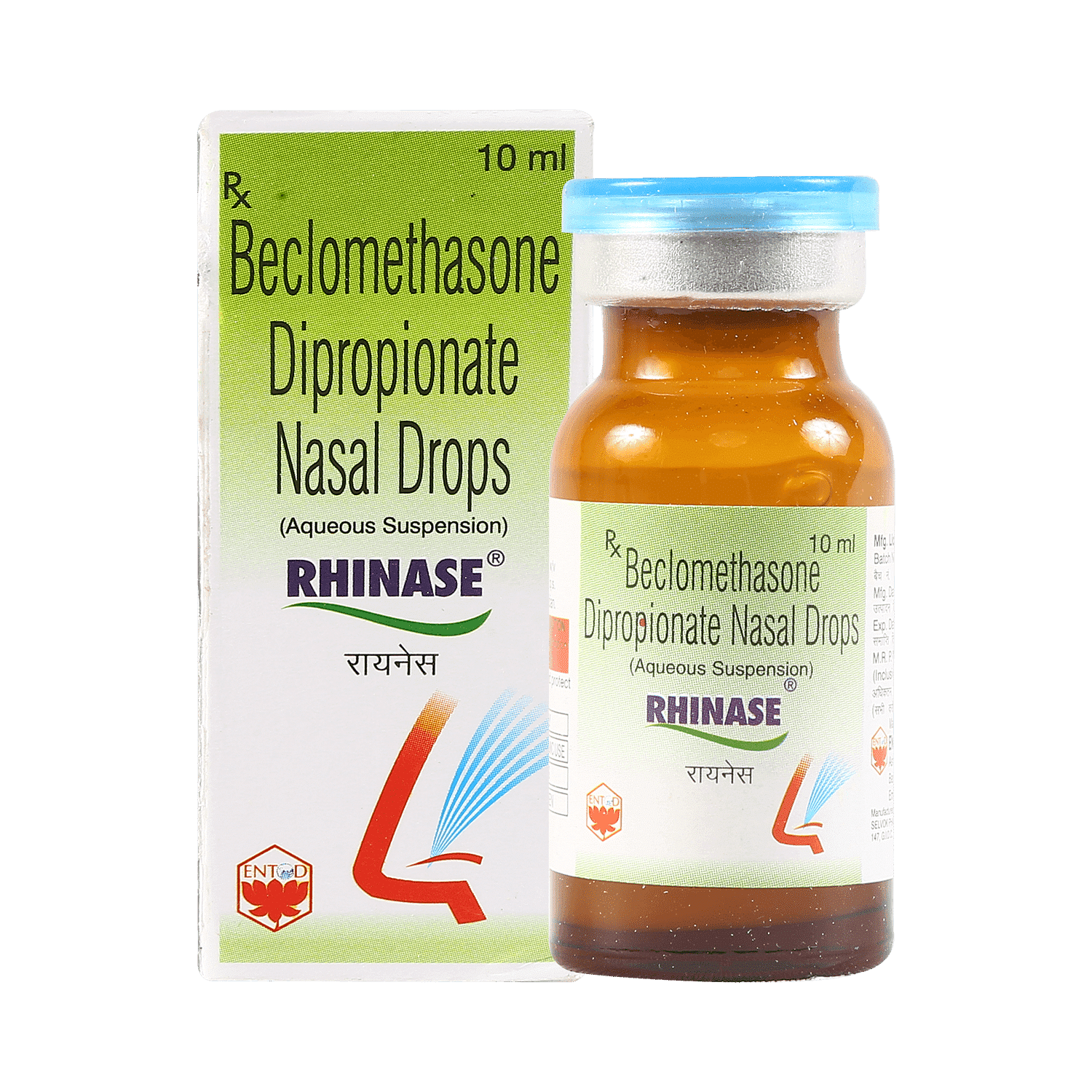
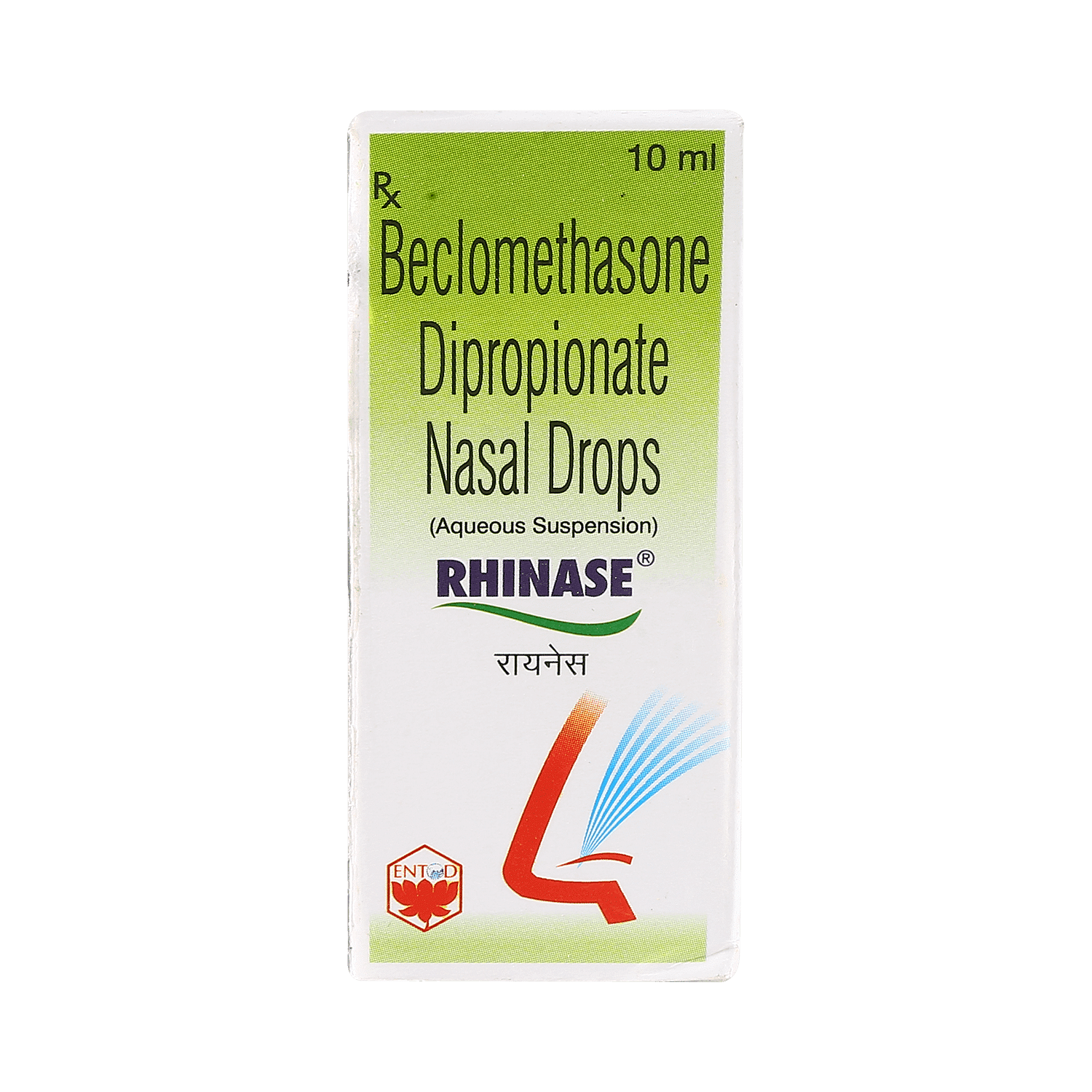
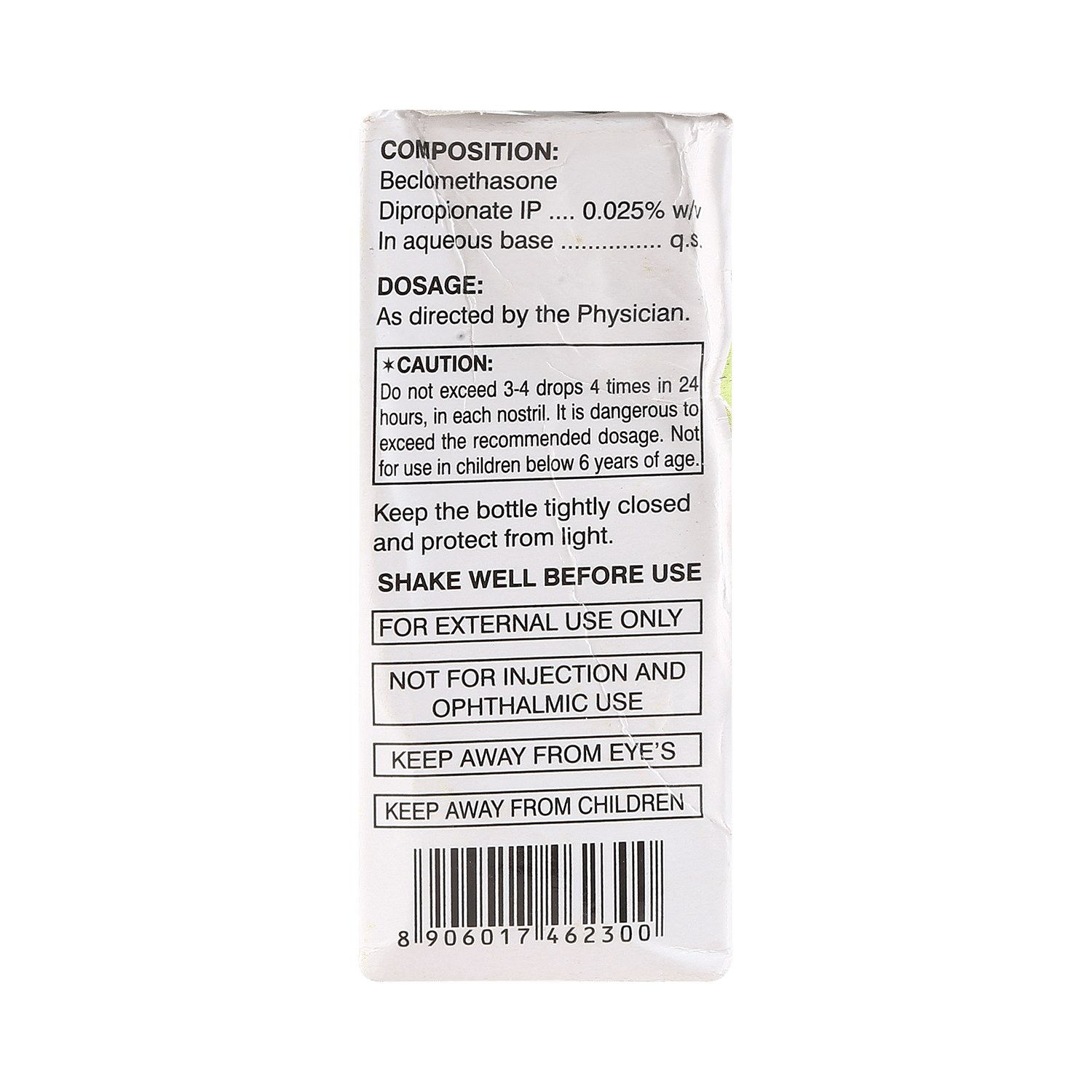
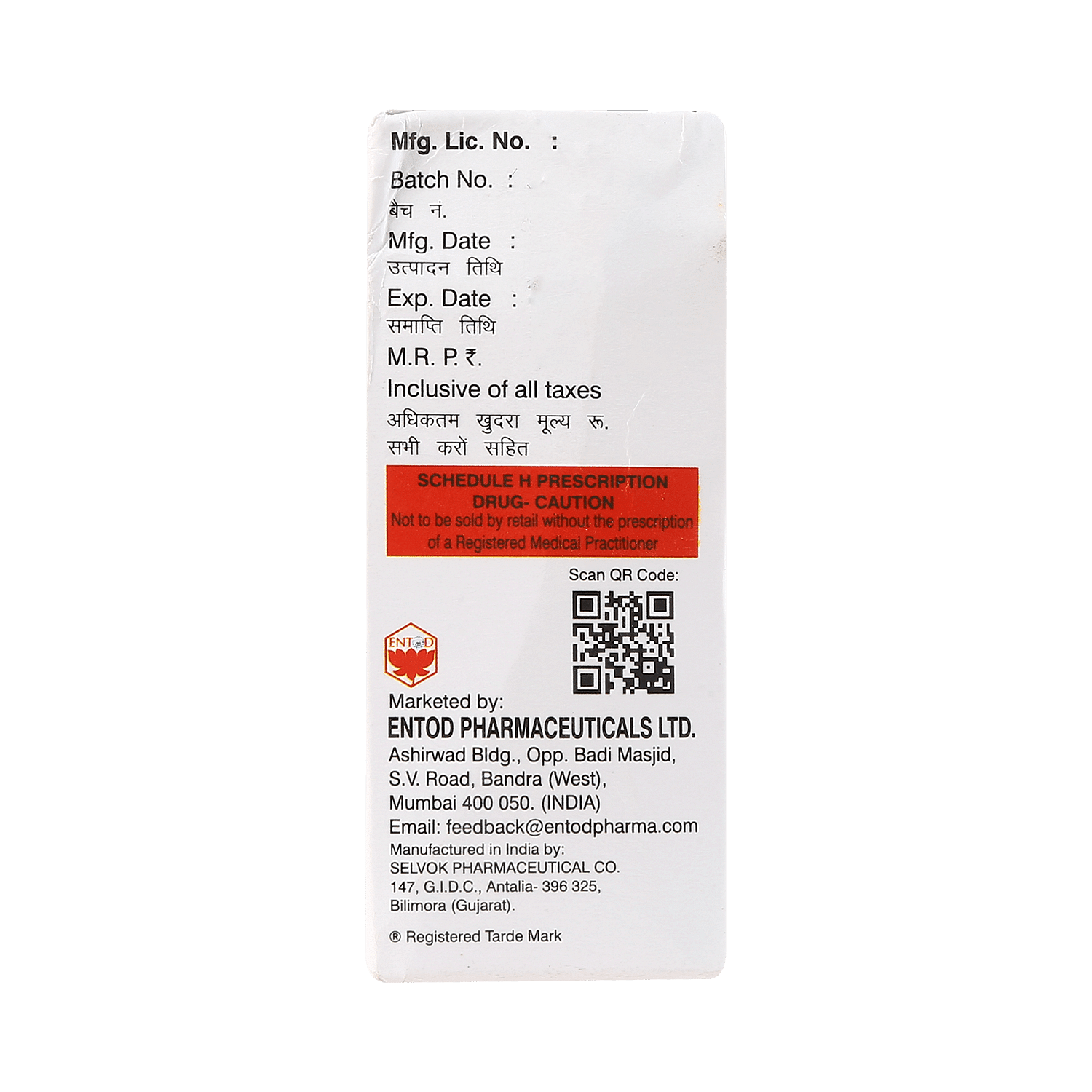
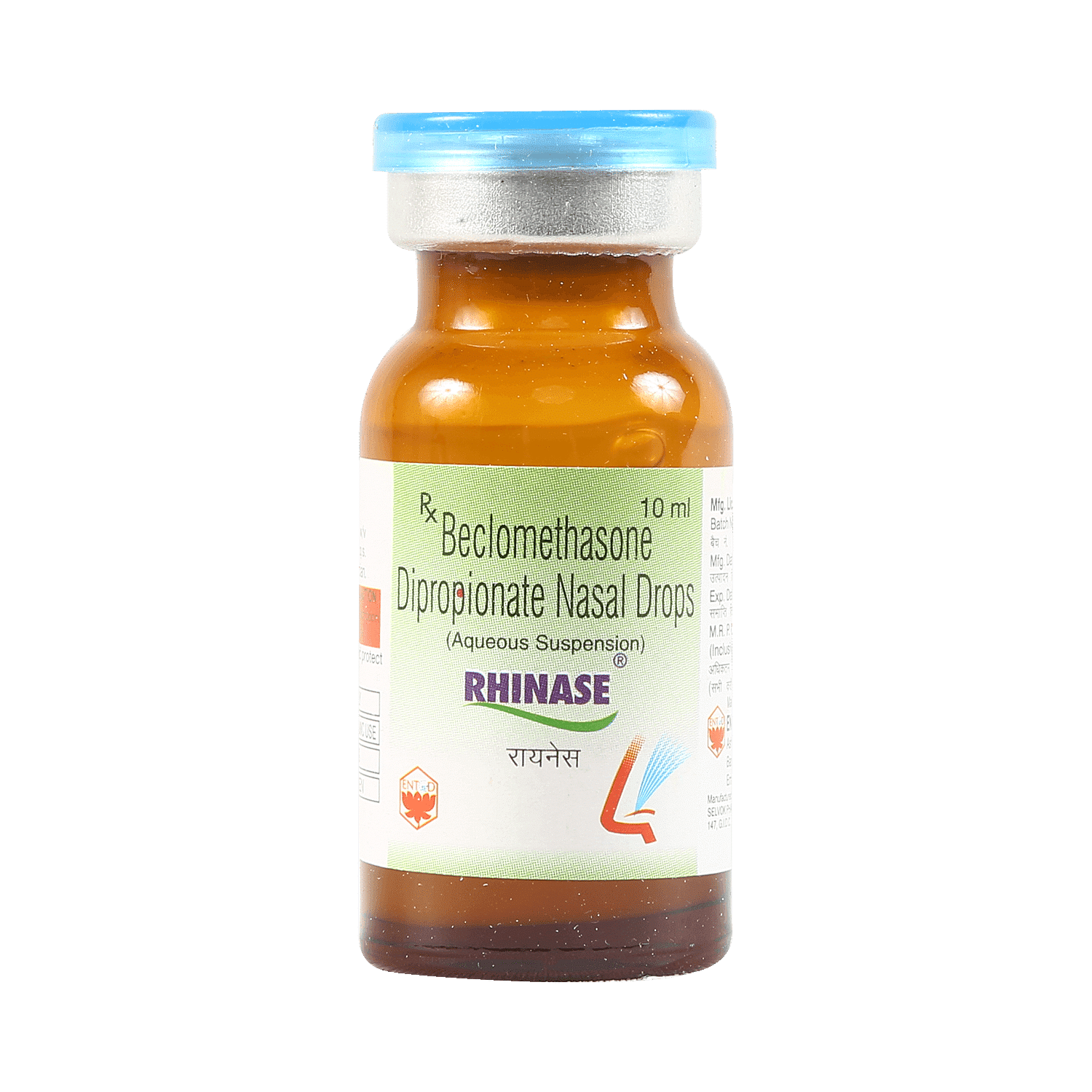
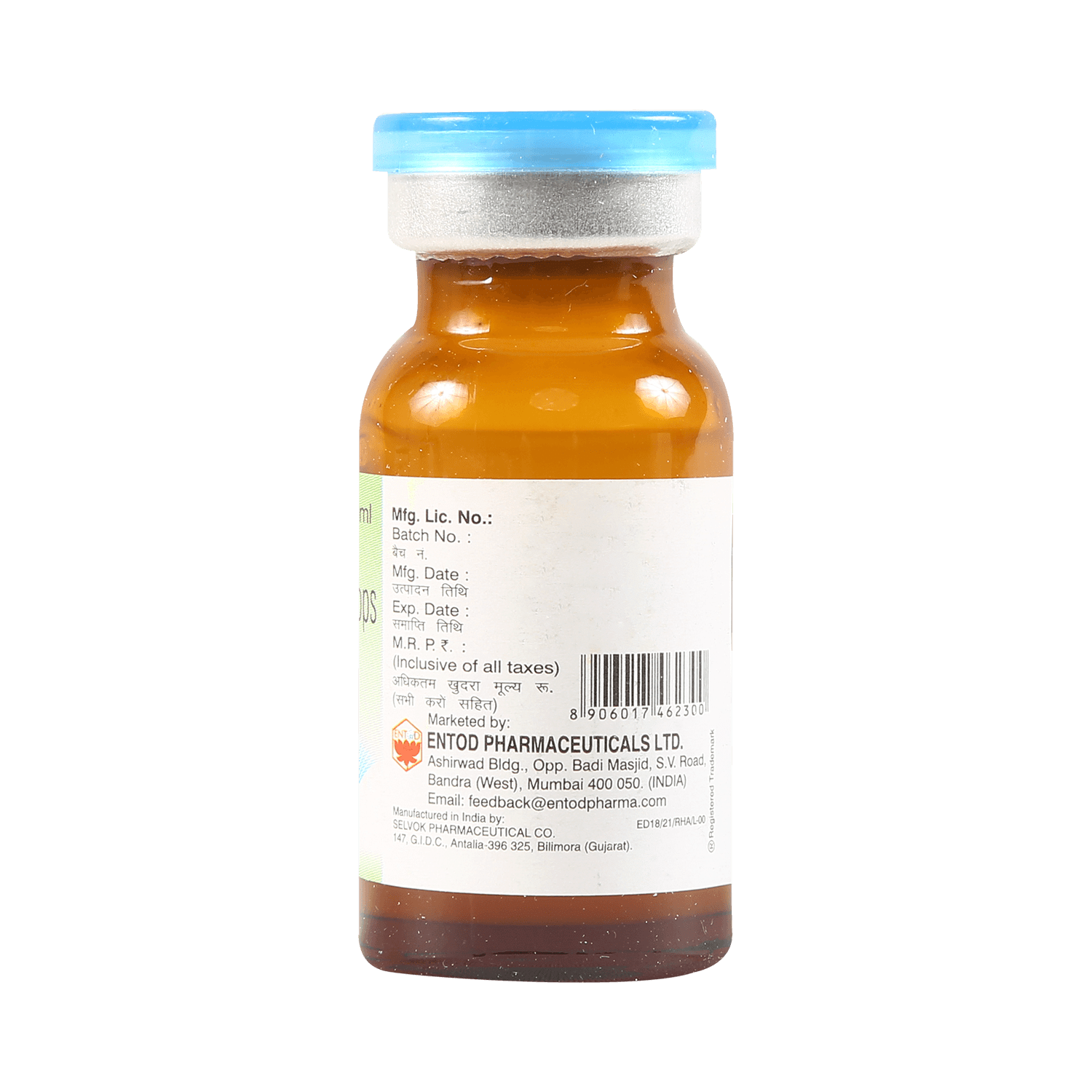
Rhinase Nasal Drops
Manufacturer
Entod Pharmaceuticals Ltd
Salt Composition
Beclometasone (0.025% w/v)
Key Information
Short Description
Rhinase Nasal Drops is a steroid that relieves symptoms of allergic rhinitis such as runny nose, sneezing, and sinus discomfort by blocking the production of certain chemical messengers that cause inflammation and allergies.
Dosage Form
Nasal Drops
Introduction
Rhinase Nasal Drops should be used as advised by your doctor. Normally, you should blow your nose gently before using it, keep one nostril closed while applying the medicine into the other, and then sniff hard to make sure it reaches deep into the nose. It may take a few days for the spray to take full effect. If you do not see any improvement in your symptoms after a week, you should talk to your doctor. The most common side effects of Rhinase Nasal Drops include rash, hives, itching, erythema, nosebleeds, nasal dryness, nasal irritation, dry throat, and throat irritation. Talk to your doctor if they do not go away or get worse. Using corticosteroids like Rhinase Nasal Drops may make you more susceptible to viral infections, so you should stay away from people who have these infections. In general, you should try to avoid situations which make your symptoms worse (things like pollen and dust mites) and it is best not to smoke.
Directions for Use
Use it in the dose and duration as advised by your doctor. Check the label for directions before use. Tilt your head as far back as possible and hold the dropper close to the nose without touching it. Gently squeeze the dropper and place the medicine in the nose. Bend your head forward for a few minutes.
Safety Information
Side Effects
Rash Hives Itching Erythema Nosebleeds Nasal dryness Nasal irritation Dry throat Throat irritation
Alcohol Warning
No interaction found/established
Breastfeeding Warning
Rhinase Nasal Drops is probably safe to use during breastfeeding. Limited human data suggests that the drug does not represent any significant risk to the baby.
Pregnancy Warning
Rhinase Nasal Drops may be unsafe to use during pregnancy. Although there are limited studies in humans, animal studies have shown harmful effects on the developing baby. Your doctor will weigh the benefits and any potential risks before prescribing it to you. Please consult your doctor.
Interacting Medicines
Acarbose Amlodipine Aprepitant Atazanavir
How it works
Rhinase Nasal Drops is a steroid that gets absorbed into the cells of the inner surface of the nose and works by blocking the production of certain chemical messengers that cause inflammation (swelling) and allergies, thus relieving blocked or runny nose, sneezing, and sinus discomfort.
Quick Tips
The right way to use the nasal spray: Shake the bottle before using the medicine. Clean your nose thoroughly before using the medicine. Insert the bottle tip into one nostril and close the other nostril. Direct the spray towards the sides of your nostril away from the cartilage dividing the two sides of your nose. Breathe out gently through your mouth and repeat the same process for the other nostril. Avoid deep breathing as it will cause the medication to go back to the throat and make it less effective. Do not share the bottle with anyone else so that you do not spread germs. Rhinase Nasal Drops should be avoided in patients with recent nasal ulcers, nasal surgery, or nasal trauma.
Frequently asked questions
Is Rhinase Nasal Drops effective? How long should I use it, and what if my symptoms don't improve?
Rhinase Nasal Drops is generally effective in managing allergy symptoms when used according to your doctor’s instructions. Do not stop using it even if you experience improvement in your condition. If symptoms do not improve or worsen after the recommended duration, consult your doctor for further guidance.
What causes thrush, and can Rhinase Nasal Drops cause it?
Thrush is a fungal infection that affects the mucous membranes in the nose and throat, often caused by Candida yeast. Rhinase Nasal Drops may cause thrush as a side effect. To prevent this, thoroughly rinse your mouth after using the nasal spray. If you notice any redness or white patches in your nose or mouth, inform your doctor immediately.
How does Rhinase Nasal Drops work?
Rhinase Nasal Drops is a corticosteroid. It works by reducing inflammation caused by allergies. This occurs by blocking the release of certain substances in the body that trigger allergic symptoms, such as swelling, redness, and pain.
How quickly do Rhinase Nasal Drops start working?
The time for Rhinase Nasal Drops to show its effects can vary from person to person. In general, it starts providing relief within 8 hours of starting treatment, but you may see maximum benefits after several days of consistent use.
My friend experienced a severe allergic reaction when she started taking Rhinase Nasal Drops. Could it be because of the medication itself?
While Rhinase Nasal Drops is designed for allergy-related problems, in rare cases, it can cause severe allergic reactions such as rash, hives, difficulty breathing, swelling of the face, throat, and tongue. This can also lead to low blood pressure that may result in lightheadedness and fainting. Seek immediate medical attention if you experience any of these symptoms.
How long should I take Rhinase Nasal Drops?
The duration for taking Rhinase Nasal Drops depends on your doctor's recommendations. It is essential to consult your doctor before stopping the medication to avoid potential complications or missed treatment.
Is Rhinase Nasal Drops safe?
Rhinase Nasal Drops is generally safe when used as directed by your doctor, following instructions precisely and reporting any side effects you experience. Never skip doses or stop the medication prematurely without consulting your healthcare provider.
Can I take Rhinase Nasal Drops for a runny nose and sneezing due to a common cold?
No, Rhinase Nasal Drops is not suitable for treating a common cold. This medicine is specifically designed for managing allergic rhinitis. If your symptoms are caused by a viral infection, consult your doctor for the appropriate treatment.


